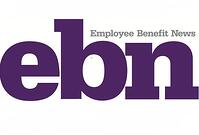 Vanguard’s How America Saves report for 2022 provided cause for optimism with some of its findings. For example, employee participation rates in Vanguard-managed defined contribution plans remain high, and have not declined year-over-year during the pandemic. The majority of participants in Vanguard plans also increased or maintained their contributions last year, and the average account balance for Vanguard participants increased by 10% year-over-year, to $141,542.
Vanguard’s How America Saves report for 2022 provided cause for optimism with some of its findings. For example, employee participation rates in Vanguard-managed defined contribution plans remain high, and have not declined year-over-year during the pandemic. The majority of participants in Vanguard plans also increased or maintained their contributions last year, and the average account balance for Vanguard participants increased by 10% year-over-year, to $141,542.
However, the report underscored that premature cash-outs of small 401(k) balances continue to threaten retirement readiness for plan participants, especially those who are younger and have less savings. Vanguard noted:
Most participants with 401(k) balances of less than $1,000 voluntarily or are automatically cashed out of their retirement savings when they leave an employer, compared to just 7% of participants with balances over $100,000. Participants who prematurely cash out their retirement savings risk immediate tax consequences and may forfeit future savings and returns if assets are not reinvested in a tax-sheltered account.
Vanguard also stated that, to resolve this issue:
Auto portability services and revisions to minimum balance rules can help decrease cash out rates.
Auto portability is the routine, standardized, and automated movement of a retirement plan participant’s 401(k) savings account from their former employer’s plan to an active account in their current employer’s plan. Auto portability was conceived and built to meet the needs of plan participants with account balances of less than $5,000, who often lack access to the portability solutions afforded to their counterparts with larger accounts.
Shortly after Vanguard issued this year’s How America Saves report, Sen. Tim Scott (R-S.C.) and Sen. Sherrod Brown (D-Ohio) introduced the Advancing Auto Portability Act of 2022, which would enact measures to enable and encourage the adoption of auto portability by plan sponsors and recordkeepers nationwide.
This proposed legislation would make it much easier for plan participants to transport and consolidate their 401(k) savings balances at the point when they change jobs—helping them avoid the destructive decision to cash out. On average, cashing out 401(k) account balances prematurely can decrease a participant’s 401(k) savings for retirement by 25%, according to Boston College’s Center for Retirement Research.
But minorities and low-income workers are disproportionately more likely to make this decision after they change jobs. The Employee Benefit Research Institute (EBRI) has found that 14.8 million plan participants switch employers every year, and according to data from the largest plan recordkeepers, nearly one-third (31%) of them will cash out their 401(k) account balances from their prior-employer plans within a year of their employment change.
This cash-out rate within a year of job-change is higher than average for plan participants who are minorities (63% for Black Americans, and 57% for Latinos), earn $20,000 to $30,000 in annual income (50%), or are between ages 20 and 29 (44%). It is also higher than average for women (41%), and especially women who are aged 25 to 34 (71%).
EBRI estimates that the nationwide adoption of auto portability would preserve up to $1.5 trillion in additional retirement savings, measured in today’s dollars, in the U.S. retirement system over the course of 40 years. That sum would include approximately $191 billion for 21 million Black Americans, and $619 billion for all minority plan participants.
The Advancing Auto Portability Act of 2022 would encourage the widespread adoption of auto portability through the creation of a $500 tax credit to assist businesses with auto portability implementation costs, and making the 2019 guidance from the U.S. Department of Labor (issued specifically to Retirement Clearinghouse) permanent—and applicable to any auto portability provider.
The legislation—and auto portability itself—have received bipartisan, mainstream support both in and out of Congress:
- Derrick Johnson, President and CEO of the National Association for the Advancement of Colored People (NAACP) wrote in his letter of support for auto portability: “Although Auto Portability alone will not address the racial wealth gap, it has the ability to positively support the ability of Black workers to build lucrative retirement investments by creating a streamlined approach to savings; one that reduces the opportunities of workers to withdraw investments.”
- Marc H. Morial, President and CEO of the National Urban League, also penned a letter of support, noting: “Now is the time for all of us to work together to reduce the wealth gap and make retirement more secure for Black families. The National Urban League stands behind all efforts to empower Black Americans and we are pleased to be aligned with you on the issue of Auto Portability.”
- In June 2017, Senator Scott sent a letter to then-Secretary of Labor Alexander Acosta urging the Department of Labor to issue guidance on auto portability. The letter received backing from the U.S. Chamber of Commerce, as well as other trade organizations such as the American Benefits Council, Investment Company Institute, Financial Services Roundtable, and Women’s Institute for a Secure Retirement.
This broad bipartisan support behind auto portability has been crucial for getting us to this point. If the legislation is signed into law, the retirement-savings gaps in our society can begin to be filled.
